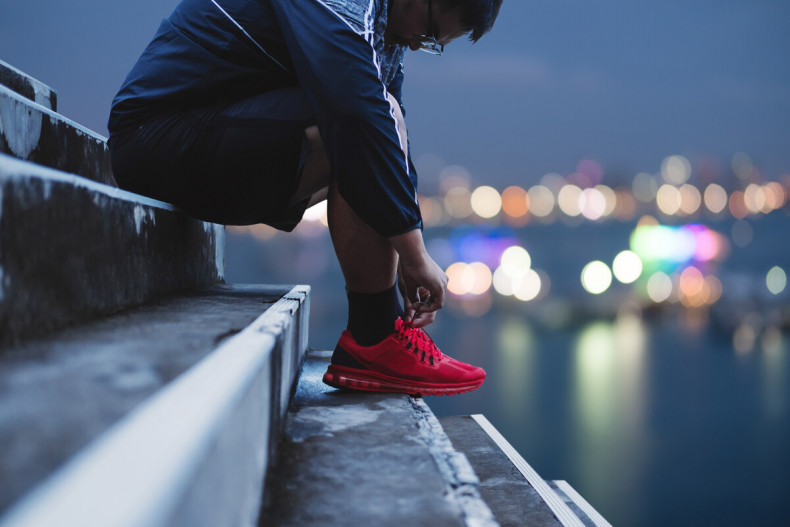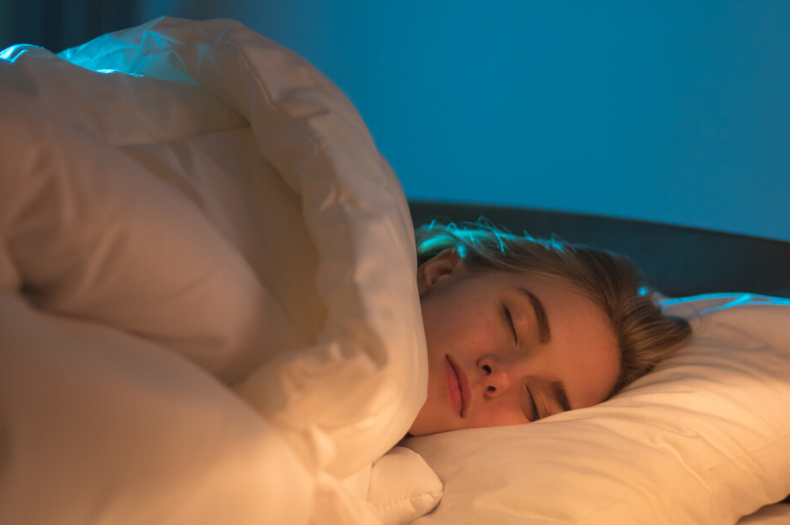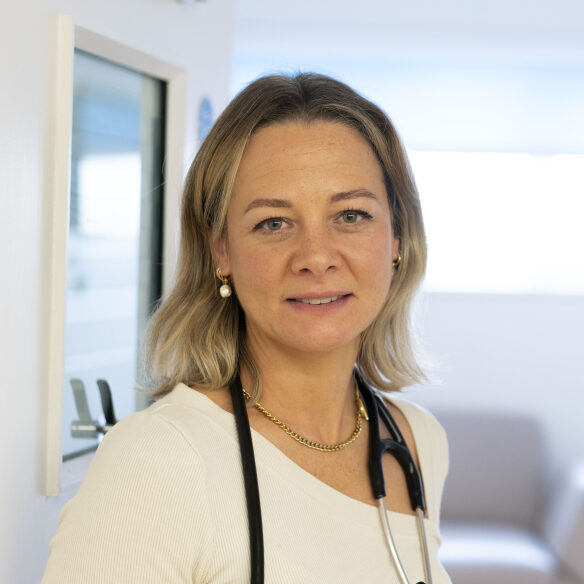Light may affect the quality of your sleep, particularly in the autumn and winter months when days are shorter. This is because your circadian rhythm – or ‘body clock’ – that regulates your sleep is influenced by the 24-hour light cycle. Light therapy may help adjust your circadian rhythm to help you sleep.
How your body clock affects your sleep
You may find it more difficult waking up during the autumn and winter months due to shorter days and darker mornings. This can be due to your circadian rhythm, or ‘body clock’.
Your circadian rhythm is the 24-hour cycle that regulates everything in your body, from when you feel hungry, to your sleep and wakefulness.
Many different things influence your circadian rhythm, including your hormones, body temperature and age, as well as your exposure to light and dark.
“Humans are a ‘diurnal’ species, meaning that we are normally more active during the day when it is light outside and feel sleepy at night when it is dark,” explains our consultant physician in respiratory and sleep medicine, Dr Allile Hare.
When you are exposed to light, it reduces the brain’s production of the sleep hormone, melatonin. This causes you to become more awake and alert.
Even artificial indoor light and light from devices such as smartphones and laptops can interfere with melatonin production, making it more difficult to fall asleep at night.
Shift work and jet lag can also interfere with your circadian rhythm, as your body finds it hard to adjust to stay awake when you would normally be sleeping.
When your circadian rhythm is disrupted, you may find it more difficult getting to sleep (insomnia) and waking up when you would like to. You may also feel sleepy during the day and experience a low mood.

Low light levels in the morning may make you feel less awake to take part in activities you enjoy.
Light therapy and sleep
Some people find that light therapy can improve the symptoms of insomnia, circadian rhythm disorders and some forms of depression such as seasonal affective disorder (SAD).
With this type of therapy, people sit in front of a special light box that emits a high light intensity up to 10,000 lux (a measure of light intensity) for a set duration each day as recommended by their doctor – normally 30 minutes to 1 hour.
Light boxes come in a variety of designs including wall-mounted lights and desk lamps. When used consistently as prescribed by a doctor, they may help reset the circadian rhythm.
It is thought that light therapy may encourage your brain to reduce the production of the sleep hormone melatonin and increase the production of serotonin – a hormone that affects your mood. As a result, this may help people with their sleep as well as improve their mood.
Gradual dawn simulation devices, also known as ‘sunrise alarm clocks’, may also be helpful for some people. They work by gradually illuminating a sleeper’s environment prior to the time they normally wake up.
A sunrise alarm clock is usually programmed to gradually brighten from its lowest light intensity to its highest over a period of 30 minutes to simulate the sun rising (though this varies between devices). Unlike light boxes, they emit a lower light intensity, usually up to 300 lux.
It is thought that by imitating a natural process, sunrise alarm clocks may help re-synchronise the body to a 24-hour day and reset the circadian rhythm as it adapts to a new light/dark sleep cycle.
There is mixed evidence regarding how effective light therapy is, but some studies have concluded they are, particularly if used first thing in the morning.
For example, a small study demonstrated that people waking up to a simulated sunrise in the last 30 minutes of sleep had feelings of increased sleep quality and alertness, as well as better results in cognitive and physical performance tests once they were awake, when compared to people who did not wake up with a simulated sunrise.
If you wish to try light therapy to help you sleep, you should check to make sure that the device you purchase is medical grade and always follow the manufacturer’s instructions on the light intensity and duration needed to achieve the desired effect.
You should speak to your doctor if you are unsure about the suitability of a particular product for your sleep.

Sunrise alarm clocks gradually illuminate a sleeper’s room before waking up.
Could I be having trouble sleeping due to something else?
“The quality of your sleep can be affected by multiple factors, including the condition of your health and whether you have an undiagnosed sleep disorder such as sleep apnoea or insomnia,” explains Dr Hare.
“If you are concerned about your sleep, you should always speak to your doctor to get medical advice based on your unique state of health and to help identify any sleep disorders you may have.”
Sleep apnoea is a relatively common condition where your breathing stops and starts repeatedly during sleep – sometimes hundreds of times a night. This can cause you to feel tired during the day and be serious if not treated, as it increases your chances of a heart attack or stroke.
A sleep study performed at a specialist sleep centre like ours can help identify whether you have sleep apnoea or another sleep disorder.
Get in touch
If you think you might have a sleep disorder and would like to speak to one of our sleep experts, get in touch with our team who can help arrange an appointment for you.
Related content
-
Sleep disorder clinic
Our experts treat all sleep disorders and can create tailored programmes of care to reduce symptoms and significantly improve quality of life.
-
Sleep disorders
There are many types of sleep disorders - both common and complex - including sleep apnoea, narcolepsy and parasominas. Learn more.
-
Sleep medicine
We have been diagnosing and treating adult sleep conditions for over 20 years at Royal Brompton and Harefield hospitals - the largest sleep service in Europe.
